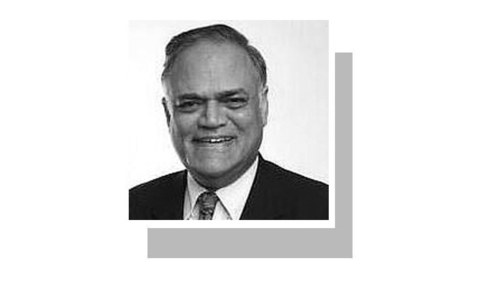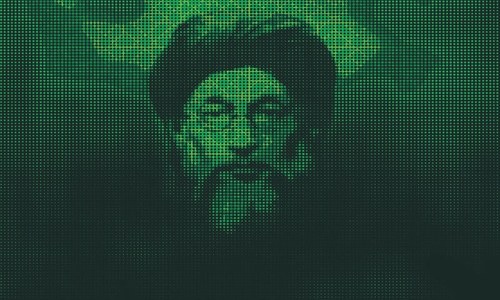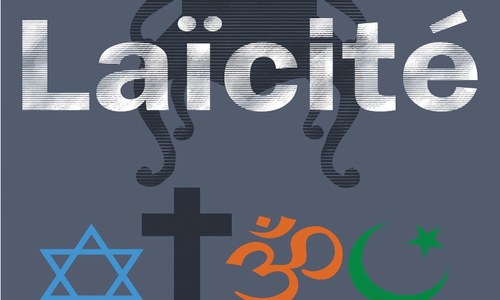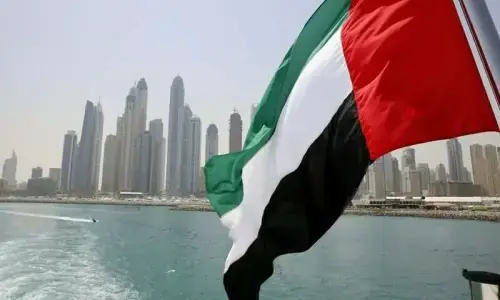In a 2016 thesis, the Turkish political scientist Emrah Konuralp writes, “in a society where ethics of citizenship based on civic solidarity is not well established, domination of religious majority would be the case.” Konuralp was not talking about a particular nation-state, but I find this observation apt when applied to Pakistan.
During a 2006 TV debate, the intellectual Khaled Ahmad asked people in the audience whether they were Muslim first or Pakistani. Ninety percent of the audience answered they were Muslim first. It’s like a Christian in Britain saying he/she is a Christian first. This sounds absurd in an era in which the 18th century idea of the nation-state has become an established norm.
Even in Muslim-majority countries, such as Egypt, Turkey and even Saudi Arabia, their Muslim citizens are likely to address themselves as Egyptians, Turks and Saudi first. But why not in Pakistan? This is a simple but important question. On the surface, a Pakistani addressing him or herself as Muslim first, may seem to be the obvious thing to do. But inherent in this is a concern that something seriously went wrong in constructing a Pakistani national identity.
The roots of this phenomenon probably lie in the existentialist turmoil that followed immediately after the erstwhile East Pakistan broke away in 1971 to become Bangladesh. In a 1972 lecture, the eminent Pakistani historian I.H. Qureshi said that countries come and go, but religions stay. He then lamented that the Islamic aspects of Pakistani nationalism were not embedded deep enough in the polity’s psyche, thus giving birth to the kind of ethno-nationalism that triggered the acrimonious departure of East Pakistan.
This was the start of a curious process. A nation-state, Pakistan, would attempt to undermine certain fundamental basics of the idea of the nation-state by replacing them with a constitutionally fortified hegemony of the country’s majority faith. But was not Pakistan created ‘in the name of Islam?’ It was.
Identifying ourselves as Muslim first, as a majority of Pakistanis do, may seem to be the obvious thing to do, but it also indicates that something went wrong in constructing our national identity
However, as the sociologist Hamza Alvi and the economist and author Shahid Javed Burki demonstrate in their respective analyses, economics was at the heart of the Muslim demand for a separate state. Muslims’ status as a minority in India, competing against an overwhelming Hindu majority and this majority’s consequential economic and political prowess, made the promise of a separate Muslim-majority country highly appealing to many Muslims.
On an ideological level, as the French political scientist Christophe Jaffrelot has often remarked, the founders of Pakistan adopted an idea which is often referred to as ‘cultural secularism.’ Jaffrelot explains it as the relegation of Islam’s theological aspects to the private sphere, and the conjuring of the faith as a political ‘identity marker’ in the public sphere.
To the ideologues of the Pakistan movement, Muslims were a nation and their faith should stem from a belief in the solidarity of this nation, not from theology as such. As the poet Faiz Ahmad Faiz remarked in 1967, Islam was an important part of Pakistan’s national body, but it was not the whole body.
The idea of turning the Muslims of India into a separate political entity and nation was problematic for the Islamists. They saw the relegation of Islam’s theological facets into the private sphere as a secular exercise because, to them, not only did this diminish the faith’s universal character, but politics was also inherent in the theology of Islam. The founders disagreed.
But once the founders succeeded in creating a nation-state, they were immediately confronted by the fact that the nation they had created constituted various Muslim sects and sub-sects, and multiple ethnic groups. The new country also had non-Muslim communities. In the absence of Hindu hegemony and because of a lack of economic resources, tensions turned inwards between sects, sub-sects and ethnic groups within the nation.

The country’s central architect, Muhammad Ali Jinnah, was quick to realise this. Anticipating eventual Islamist dominance, his first address to the country’s Constituent Assembly clearly underscored the fact that, in a nation-state, religion was not to be the major arbiter. Otherwise, to paraphrase Konuralp, political authority would team up with religious authority and the citizens would not be able to interrogate the acts of the administration functioning in the name of a religion.
Jinnah insisted that the state of Pakistan was to remain neutral towards religions and beliefs. Therefore, Muslim majoritarianism in the context of Pakistan meant freedom from Hindu economic and political hegemony, not the creation of an Islamic theocracy. This was the original explanation behind Pakistan’s creation in the name of Islam. The nation and then the nation-state were constructed to bolster the economic and political interests of the region’s Muslims, rather than to enact a theocracy or a ‘bastion of Islam’ — as the country began to be described by the state after 1971.
But Jinnah’s ideas in this context required the immediate implementation of republicanism and democracy with a civic-nationalist tenor. Instead, his ideas were carried forward by what is called ‘authoritarian high modernism’, in which the state undermines pluralism and diversity to construct a tightly centralised whole in the name of unity and progress.
And even though the state maintained its ‘modernist’ outlook, it was not immune from beckoning religious emotionalism when required, as it did during the 1965 and 1971 wars against India.
The modernist authoritarian edifice collapsed in 1971. To salvage what remained of the country, the state and various governments began to formulate a national identity heavily informed by the theological aspects of Islam, and then enshrined in a new constitution.
The historian Dr Mubarak Ali writes in In Search of History, that when the Muslims completely lost power in India in the 19th century, and suddenly became conscious of their minority status, many began to explain themselves as part of a larger ‘Muslim ummah.’ Insecurity and vulnerability were the main reasons behind this reaction.
The same thing happened after 1971 — even though Pakistan was a Muslim-majority country. But the insecurity and paranoia triggered by the ‘East Pakistan debacle’ saw the state and nation beginning to identify more with the larger Muslim community than the national community which the founders had created.
Over a period of time, this mostly imaginary kinship with a supposed international Islamic collective, transformed the parameters of what it means to be Pakistani. To most it now means Muslim first, Pakistani second. There is almost a reluctance to say Pakistani first. The post-1971 narrative, instead of creating a united and secure republic, has moulded a reluctant republic.
Published in Dawn, EOS, July 4th, 2021
































